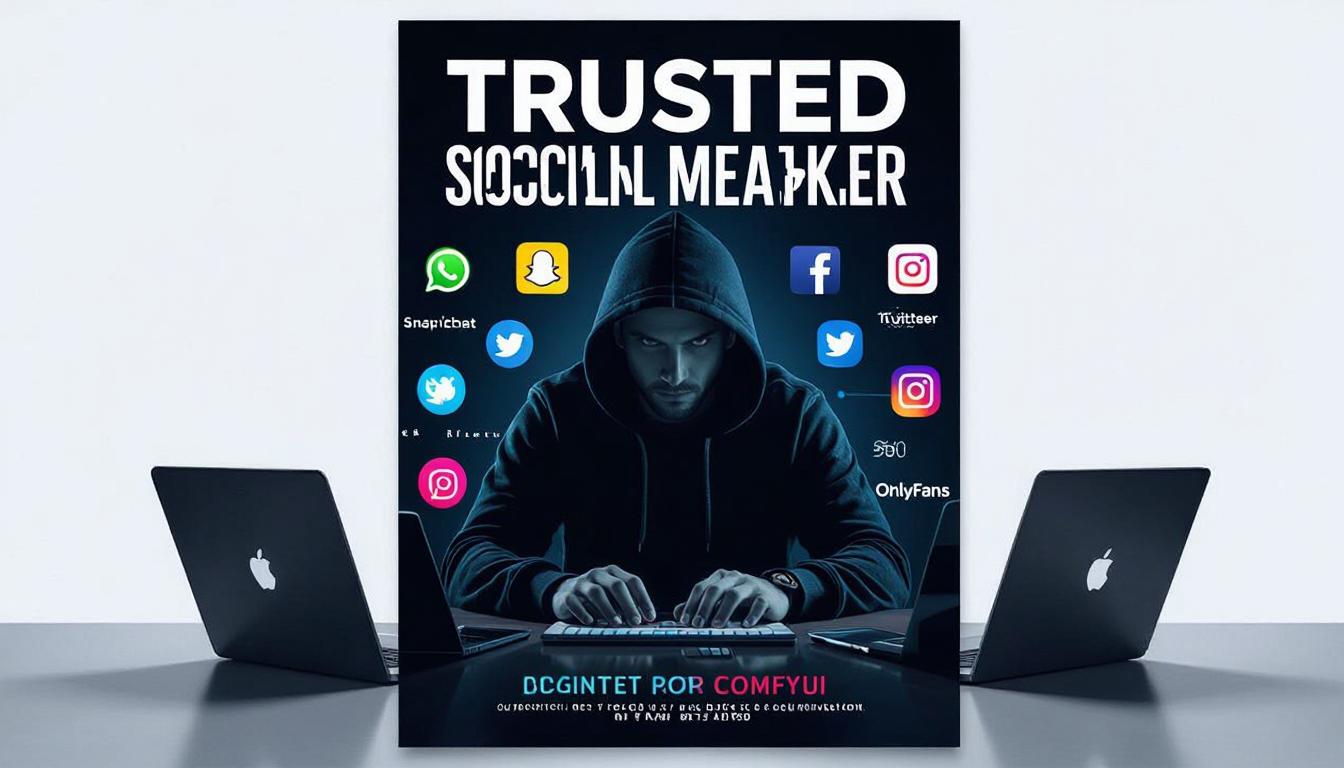Trusted Social Media Hacker: 7 Proven Ways to Spot the Real Deal
Table of Contents
- The Problem with “Hackers for Hire” Online
- Why Trust Matters More Than Technical Skill
- Social Proof: Your First Line of Defense
- Red Flags That Scream “Scam”
- How Professionals Prove Their Credibility
- The Role of Communication in Building Trust
- Case Notes: When Clients Share Success Stories
- Comparing Platforms: Freelance Sites vs. Direct Specialists
- How to Choose Your Trusted Social Media Hacker Wisely
- Final Thoughts
1. The Problem with “Hackers for Hire” Online

Trusted social media hacker — those four words might seem straightforward, but in practice, they open a complicated, murky world. The internet is flooded with self-proclaimed “experts” offering quick account recovery, password resets, or message retrieval. The problem? For every skilled professional, there are dozens of imposters, armed only with stock photos, vague promises, and a PayPal link.
2. Why Trust Matters More Than Technical Skill
A talented hacker without integrity is still a liability. Social media account recovery often requires access to sensitive personal data — sometimes even bypassing platform security directly. Without trust, you’re gambling with your privacy, financial security, and sometimes your reputation.
The best professionals blend skill with a track record that reassures clients. That’s why many in the industry say: “If you can’t verify them, you can’t hire them.”
4. Red Flags That Scream “Scam”
There are recurring signs that separate the pros from the opportunists:
- No verifiable identity: If all they give you is a Gmail address and a Telegram handle, proceed with caution.
- Upfront payment only, no milestones: Many scammers push for full payment without showing any initial progress.
- No specific questions about your case: A real expert wants details. Scammers just want your money.
- Unrealistic guarantees: “100% success” is often the loudest lie.
5. How Professionals Prove Their Credibility
A legitimate trusted social media hacker understands that your trust is as important as your payment. They might offer:
- A contract outlining the scope, risks, and terms.
- Incremental updates, so you see work in progress.
- Clear communication about what’s possible — and what’s not.
- References you can discreetly verify.
When assessing credibility, I’ve found it valuable to talk directly about the methods they’ll use — without asking for sensitive details. A real pro knows how to explain their approach without compromising operational security.
Protect your online accounts and data by leveraging our email account restore resources today.
6. The Role of Communication in Building Trust
You can tell a lot about a person by the way they respond to initial messages. Do they reply quickly but vaguely? Or do they take time to answer your specific concerns? Legitimate specialists know that part of their job is building rapport. They’ll listen, clarify, and explain possible outcomes before asking you for any sensitive data.
As FTC guidance on avoiding online scams reminds us — clear, transparent communication is one of the strongest indicators of legitimacy.
7. Case Notes: When Clients Share Success Stories
I’ve interviewed several people who’ve hired genuine recovery specialists. One client told me about losing access to their business Instagram account after a phishing attack. The hacker they worked with didn’t just recover the account — they also walked them through two-factor authentication and phishing awareness, preventing future breaches.
Stories like these aren’t marketing fluff; they’re practical proof that the person you’re hiring has the skills and the ethics to do the job right.
8. Comparing Platforms: Freelance Sites vs. Direct Specialists
Freelance platforms like Fiverr or Upwork can connect you with technical talent, but they also come with limitations. You’re often dealing with people who can’t openly advertise certain recovery methods due to platform policies. This means their most effective tactics may be hidden, making it harder for you to fully vet them.
Direct specialists, on the other hand, often operate independently and can be more transparent about their approach — though you still need to verify their legitimacy thoroughly.
9. How to Choose Your Trusted Social Media Hacker Wisely
When narrowing down your options:
- Research their online footprint.
- Ask for specific examples of successful recoveries.
- Discuss timelines and payment structures upfront.
- Verify testimonials wherever possible.
- Assess their willingness to educate you on prevention measures.
10. Final Thoughts
In this field, skill alone isn’t enough. The people worth hiring combine technical mastery with integrity, transparency, and verifiable proof. A trusted social media hacker will make you feel informed and safe at every step — not pressured, confused, or ignored.
If you treat trust as a non-negotiable, you’ll not only recover your accounts, but you’ll also protect yourself from becoming a victim twice over.
Frequently Asked Questions
Look for consistent mentions of their work across multiple, independent platforms — and confirm details wherever possible.
Not always. Cost depends on complexity, urgency, and the hacker’s experience level.
Yes, in some cases — but not all. Success depends on timing and platform policies.
Seek referrals from trusted online communities, not from random ad clicks.
Many do, though response time can depend on your time zone and the platform’s security protocols.

3. Social Proof: Your First Line of Defense
In online services, social proof is more than reviews — it’s a layered system of credibility. A legitimate social media hacker can often provide:
Checking their name or alias across multiple online spaces is smart. If they’re genuinely skilled, you’ll likely find traces of their work mentioned positively — maybe on Reddit threads, niche security forums, or even in cybersecurity blog comments.